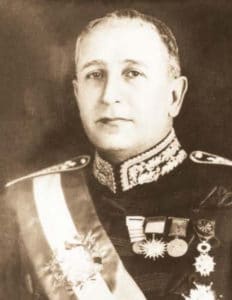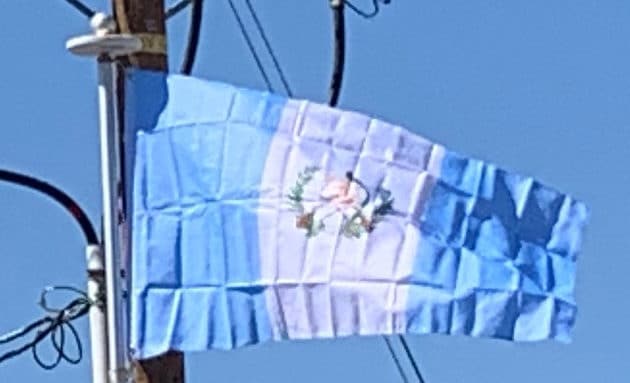Estrada Cabrera continued in power until forced to resign after new revolts in 1920. By that time his power had declined drastically and he was reliant upon the loyalty of a few generals. While the United States threatened intervention if he was removed through revolution, a bipartisan coalition came together to remove him from the presidency. He was removed from office after the national assembly charged that he was mentally incompetent, and appointed Carlos Herrera in his place on 8 April 1920.
Jorge Ubico Regime (1931–1944):
The Great Depression began in 1929 and badly damaged the Guatemalan economy, causing a rise in unemployment, and leading to unrest among workers and laborers. Afraid of a popular revolt, the Guatemalan landed elite lent their support to Jorge Ubico, who had become well known for “efficiency and cruelty” as a provincial governor. Ubico won the election that followed in 1931, in which he was the only candidate. After his election his policies quickly became authoritarian. The government became highly militarized; under his rule, every provincial governor was a general in the army.

Ubico continued his predecessor’s policy of making massive concessions to the United Fruit Company, often at a cost to Guatemala. He granted the company 200,000 hectares (490,000 acres) of public land in exchange for a promise to build a port, a promise he later waived. Since its entry into Guatemala, the United Fruit Company had expanded its land-holdings by displacing farmers and converting their farmland to banana plantations. This process accelerated under Ubico’s presidency, with the government doing nothing to stop it. The company received import duty and real estate tax exemptions from the government and controlled more land than any other individual or group. It also controlled the sole railroad in the country, the sole facilities capable of producing electricity, and the port facilities at Puerto Barrios on the Atlantic coast.
Guatemalan Revolution (1944–1954):
On 1 July 1944 Ubico was forced to resign from the presidency in response to a wave of protests and a general strike inspired by brutal labor conditions among plantation workers. His chosen replacement, General Juan Federico Ponce Vaides, was forced out of office on 20 October 1944 by a coup d’état led by Major Francisco Javier Arana and Captain Jacobo Árbenz Guzmán. About 100 people were killed in the coup. The country was then led by a military junta made up of Arana, Árbenz, and Jorge Toriello Garrido.
The junta organized Guatemala’s first free election, which the philosophically conservative writer and teacher Juan José Arévalo, who wanted to turn the country into a liberal capitalist society won with a majority of 86%. His “Christian Socialist” policies were inspired to a large extent by the U.S. New Deal of President Franklin D. Roosevelt during the Great Depression. Arévalo built new health centers, increased funding for education, and drafted a more liberal labor law, while criminalizing unions in workplaces with less than 500 workers, and cracking down on communists. Although Arévalo was popular among nationalists, he had enemies in the church and the military, and faced at least 25 coup attempts during his presidency.
